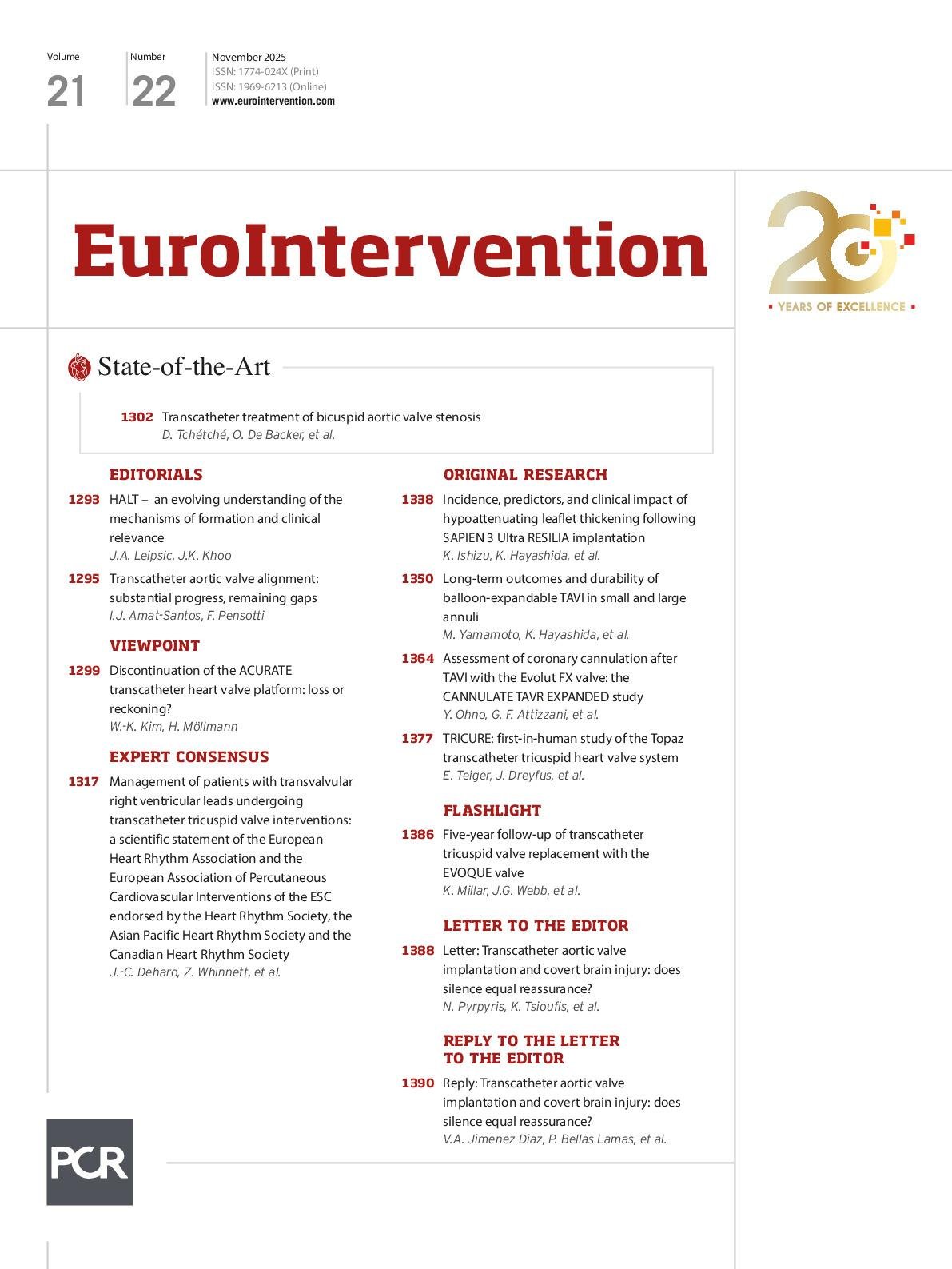We read with great interest the study by Jimenez Diaz et al1, evaluating antiplatelet and oral anticoagulation (OAC) strategies to prevent cerebral microembolism after transcatheter aortic valve implantation (TAVI). This study showed that the use of OAC instead of antiplatelets in patients without indication for anticoagulation did not have any benefit in cerebral microembolism at three-month follow-up. Along with these important findings, several clinical implications arise. Despite all patients having elevated biomarkers of cerebral injury and the majority having new brain lesions on magnetic resonance imaging (MRI) following TAVI, the true mechanism and clinical significance of this silent injury is not clear. Recent analyses show an adverse effect of covert brain lesions in early neurocognitive outcomes that require longer term evaluation2. In this study1, the authors reported neurocognitive decline in the total patient population during follow-up compared to baseline. In contrast, other investigations show that TAVI can enhance cognitive function, potentially due to improved cerebral blood flow as a result of the enhanced postprocedural cardiac haemodynamics3. As currently there are no established predictors of cognitive improvement...
Sign up for free!
Join us for free and access thousands of articles from EuroIntervention, as well as presentations, videos, cases from PCRonline.com

